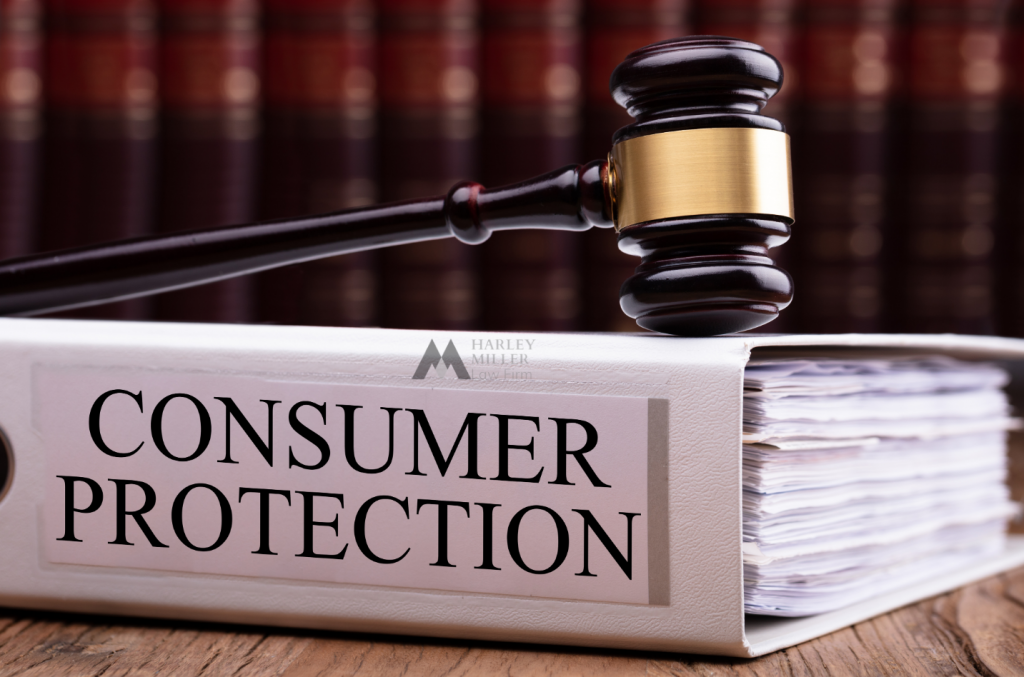The Government of Vietnam has tasked the Ministry of Industry and Trade (MOIT) with drafting a revised version of the CPL. Revised version to strengthen consumer protection policy. In addition, it also aims to prevent loopholes in transactions with businesses. The new CPL was discussed during the 5th session of the National Assembly in May 2023. This article will provide some key highlights of the new CPL.

Applicable object:
CPL applies to the Fatherland Front and socio-political organizations protecting consumers. The law stipulates agencies, organizations and individuals involved in consumer protection. They can be domestic or foreign legal entities. The CPL also applies to foreign entities and companies that comply with foreign laws. The foreign entity is liable to consumers under the new CPL.
The definition of “consumer” in the newly revised CPL includes:
“A person who buys and uses products, goods and services for consumption and daily activities of individuals, families or organizations, without commercial purposes”. However, it does not specify whether this definition applies to Vietnamese consumers and foreigners residing in Vietnam, Vietnamese citizens residing abroad or foreign nationals purchasing goods from organizations. Vietnam or not. The government may need further clarification to avoid confusion about the application of the CPL in practice.
Furthermore, even though the new CPL includes the phrase “not for commercial purposes”. But it doesn’t give any explanation as to what constitutes “commercial purposes”. It may be necessary to see the Commercial Law to understand “commercial activities” and “commercial purposes”. Understanding “commercial purposes” is important to determining the scope of the CPL.
Productions Recall
The merchant must proceed with the recall of his goods when it is determined that the goods are defective. The new CPL provides a definition of defective goods. The goods described are not safe for consumers. Likely to endanger their life, health or property. It emphasizes that the error cannot be detected at the time of provisioning. Even if the goods are manufactured in accordance with applicable standards or specifications.
The definition includes three categories:
+ A: Defective goods. Goods that are capable of causing damage to the health and life of consumers.
+ B: Goods with defects that are likely to cause damage to the consumer’s property.
+ C: Defective goods can cause damage to the health, life and property of consumers. Therefore, group A applies regulations to this type of goods.
The new CPL assigns clear responsibility to merchants for each group of defective goods. Accordingly, it is important for traders to correctly identify the specific group. This helps in carrying out its obligations effectively.
Another notable provision of the new CPL. Once merchants identify defective goods, they must notify them in advance. Then tell the relevant authorities about the error and the recall process. This represents an improvement over the previous CPL. Clearer regulation of merchants’ liability when defective products are discovered. In addition, set specific reporting timelines for authorities.
The CPL stipulates a case where many traders are jointly liable if they cause damage. In this case, the merchants must jointly compensate the damaged individual.

Protecting consumer information
To comply with Vietnam’s new regulations on personal data protection. CPL has implemented new provisions regarding the protection of consumer information.
Here is the key point:
+ CPL introduces a revised definition of “consumer information”. Including personal information, detailed information about the purchase and use of goods and services. As well as other information relating to transactions between consumers and merchants.
Traders must establish and implement rules to protect consumer information. These rules must clearly state the items. Including: purpose of information collection, scope of information use, information storage period. And measures are taken to protect and ensure the safety of consumer information. At the head office, business location, website and application of the merchant. Traders must publicly announce these rules. This makes it easier for consumers to review them before or at the time of collection.
The new law has additional provisions on the responsibility of timely notification to the authorities. The time limit is 24 hours when the information system is hacked and there is a risk of information loss:
+ Before storing or using consumer information, traders must clearly notify. Public and appropriate for the consumer regarding the purpose, scope of collection and use, and shelf life. Traders must obtain consent from consumers. Unless otherwise provided by the consumer or the law.
+ Traders must establish mechanisms to obtain explicit consent from consumers. For activities such as sharing their information with third parties, engaging in marketing purposes.
+ When the storage period expires, the trader must destroy the consumer’s information.
Other notable provisions:
CPL has introduced new regulations that businesses also need to pay attention to, in addition to the essential regulations.
The CPL has additional regulations that apply to transactions in cyberspace and also for direct sales. Some of the regulations include transaction management and others. Direct selling regulations include door-to-door selling and multi-level marketing. In addition, this provision also applies to sales at non-regular locations.
Regarding dispute settlement between consumers and traders, the new regulations include:
+ Allow the parties to choose the method of settlement. Including in-person or online dispute resolution as required by law.
+ Clarifying the responsibilities of the parties involved in providing information during the dispute settlement process.
+ State management agencies and social organizations are obliged to participate in protecting the interests of consumers. Their duty is to keep the information and documents provided in accordance with the law.
+ Set up the order and procedures for mediation. In accordance with the provisions of the law on commercial mediation.
+ People can settle civil cases according to summary procedures. To be specified in the Civil Procedure Code if the conditions specified in Clause 1, Article 317 are satisfied or specific conditions are met.
Furthermore, the CPL provides a definition of “influencers”. Also define their responsibilities in introducing goods and products to consumers.

Conclusion
In summary, the Consumer Protection Law is changing dramatically with the new Consumer Protection Law. Proposed amendments to improve consumer rights and guide traders in ensuring safe and quality goods and services.
The CPL sets out provisions on the recall process, consumer information protection, dispute resolution methods, and the responsibilities of the parties involved.
By addressing emerging challenges in the digital era and strengthening legal protections, these changes will contribute to building a fair and transparent marketplace that prioritizes the interests and satisfaction of customers. Vietnamese consumers.
Harley Miller Law Firm “HMLF”
Head office: 14th floor, HM Town building, 412 Nguyen Thi Minh Khai, Ward 05, District 3, Ho Chi Minh City.
Phone number: +84 937215585
Website: hmlf.vn Email: miller@hmlf.vn





